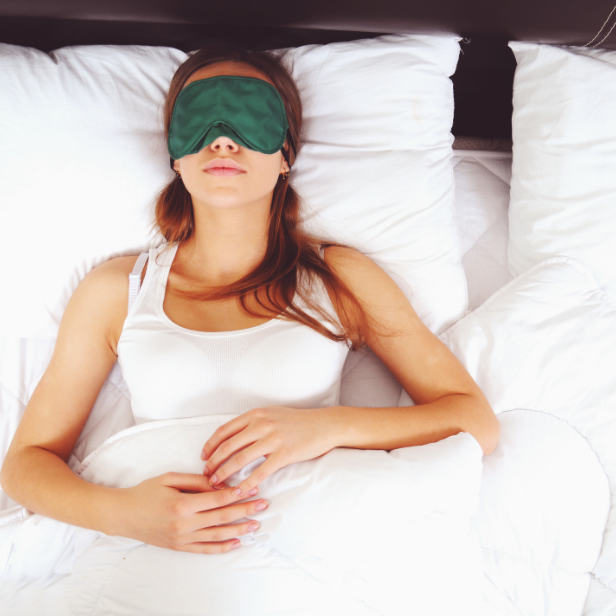⏰ 5 mins reading time
Most people have not heard of a sleep psychiatrist. A sleep psychiatrist is a medically qualified doctor who has specialised in the field of psychiatry, in addition to having specialist knowledge and experience in the assessment and treatment of sleep disorders.
Many people at some point in their life encounter difficulties with getting a good night’s sleep. Thankfully, for most people this is temporary, and short lived. However, for others, sleeping difficulties persist for long enough to the point where it can have a negative impact on various aspects of the affected person’s life.
What seems to be is less commonly talked about, is the very close link between poor sleep and a range of mental health difficulties. There seems to be no shortage of historical quotes referencing the link between good sleep and a person’s wellbeing.
An example can be found in a quote from Shakespeare:
“Innocent sleep. Sleep that soothes away all our worries. Sleep that puts each day to rest. Sleep that relieves the weary labourer and heals hurt minds. Sleep, the main course in life’s feast, and the most nourishing.”
Thomas Dekker remarked “Sleep is that golden chain that ties our health and bodies together”.
More recently, the Dalai Lama said “Sleep is the best medication”.
I have found that these quotes can kick start some interesting discussions about sleep. It can also be helpful to explore the findings from clinical trials and research to see if the suspicions of our predecessors can be supported with a scientific evidence base.
For example, in 2011, a meta-analysis of 21 longitudinal epidemiological studies found that the most common sleep disorder, insomnia, was linked with a twofold increase in the risk of developing one of the most common mental health conditions, depression1. Other studies point towards a bidirectional (a two-way) relationship between insomnia and depression. This means that the presence of depression can potentially predict the onset of insomnia, and vice versa2 .

Depression is a leading cause of disability worldwide and a major contributor to the overall global burden of disease3. Depression causes people to feel low in mood on most days for at least 2 consecutive weeks or more. A person who is depressed may find that they have a reduced ability to derive pleasure from activities that they found enjoyable before they became depressed. For example, somebody who usually enjoys watching movies, reading or playing sports might find that these are activities that they no longer feel enthusiastic about. Other people may withdraw from socialising with their friends and family, and start to isolate themselves. Depression has been linked to changes in various biological functions such as appetite, weight and sex drive. Depression can cause a negative change in the way people perceive themselves, and the world around them. Some people can start to feel cynical and hopeless, or find that they are struggling to concentrate or make decisions. They might even start to predict negative outcomes for various situations, which can cause them to feel demotivated.
Symptoms of depression can exacerbate the difficulties that arise from insomnia. Furthermore, many patients report that it is a struggle to implement changes that might improve their insomnia whilst they are battling with depression. Similarly, someone who is trying to introduce changes to their lifestyle in order to overcome depression may find it is difficult to do so when they feeling tired and drained all the time because of insomnia. This can be an unfortunate double whammy for people affected by these conditions.

A person affected by insomnia can often feel drained, tired all the time, and low in energy. Some people develop physical symptoms such as noticing that their eyes feel extremely heavy, or they can experience aches and pains and occasionally headaches. They might be yawning a lot during the day. There can be mood changes, and many of my patients tell me that their family, friends or work colleagues have noticed that they can be irritable, impatient and short tempered, especially in the mornings after a bad night’s sleep. This could potentially have a negative impact on people’s relationships.
People affected by insomnia commonly find that concentrating and focusing on tasks for extended periods of time can be challenging. It is not uncommon for people to become increasingly forgetful, and they notice that over time their short-term memory is not as good as it used to be. Over the long term, people might notice a drop in performance with their work / studies, and in severe or prolonged cases, this can result in people struggling to achieve their full potential academically or professionally. Needless to say, this can have serious implications for the affected person’s future.

A similar dilemma is faced by people affected by other mental health conditions, including (but not limited to) anxiety, obsessive compulsive disorder, post-traumatic stress disorder and emotionally unstable personality disorder. It is also worth noting that many other sleep disorders such as obstructive sleep apnoea, restless leg syndrome and nightmare disorder have been associated with a range of mental health conditions.
Unfortunately, the current set up of many healthcare services do not seem to fully account for the association between sleep disorders and mental health conditions. Patients often receive input from mental health services for common conditions such as depression, anxiety and trauma, without any in depth exploration of their sleep, sleep specific treatment plans, or a referral to an appropriate sleep service. Similarly, sleep services seldom have the capacity to treat mental health conditions alongside sleeping difficulties in-house, and patients struggling with sleeping difficulties and mental health issues that occurring together, are often signed posted to their local mental health team. As one of my patients recently said, “it feels that services are not at all joined up”.
This can be an issue for patients who have a preference for continuity of care, and can be a factor that results in people deciding that they wish to consult with a sleep psychiatrist for the assessment and management of their sleep and mental health difficulties.
If you made it this far, I would like to thank you for taking the time to read my very first blog post. In future blog posts, I will be aiming to cover topics that will hopefully help raise awareness about sleep and mental health conditions, and more importantly, why we should all care about the links between the two.
References:
1. Baglioni C, Battagliese G, Feige B, Spiegelhalder K, Nissen C, Voderholzer U, Lombardo C, Riemann D (2011) Insomnia as a predictor of depression: a meta-analytic evaluation of longitudinal epidemiological studies. J Affect Disord 135(1-3), 10-19.
2. Siversen et al (2012) the bidirectional association between depression and insomnia: The HUNT study. Psychosomatic Medicine, Sep;74(7):758-65.
3. https://www.who.int/news-room/fact-sheets/detail/depression










